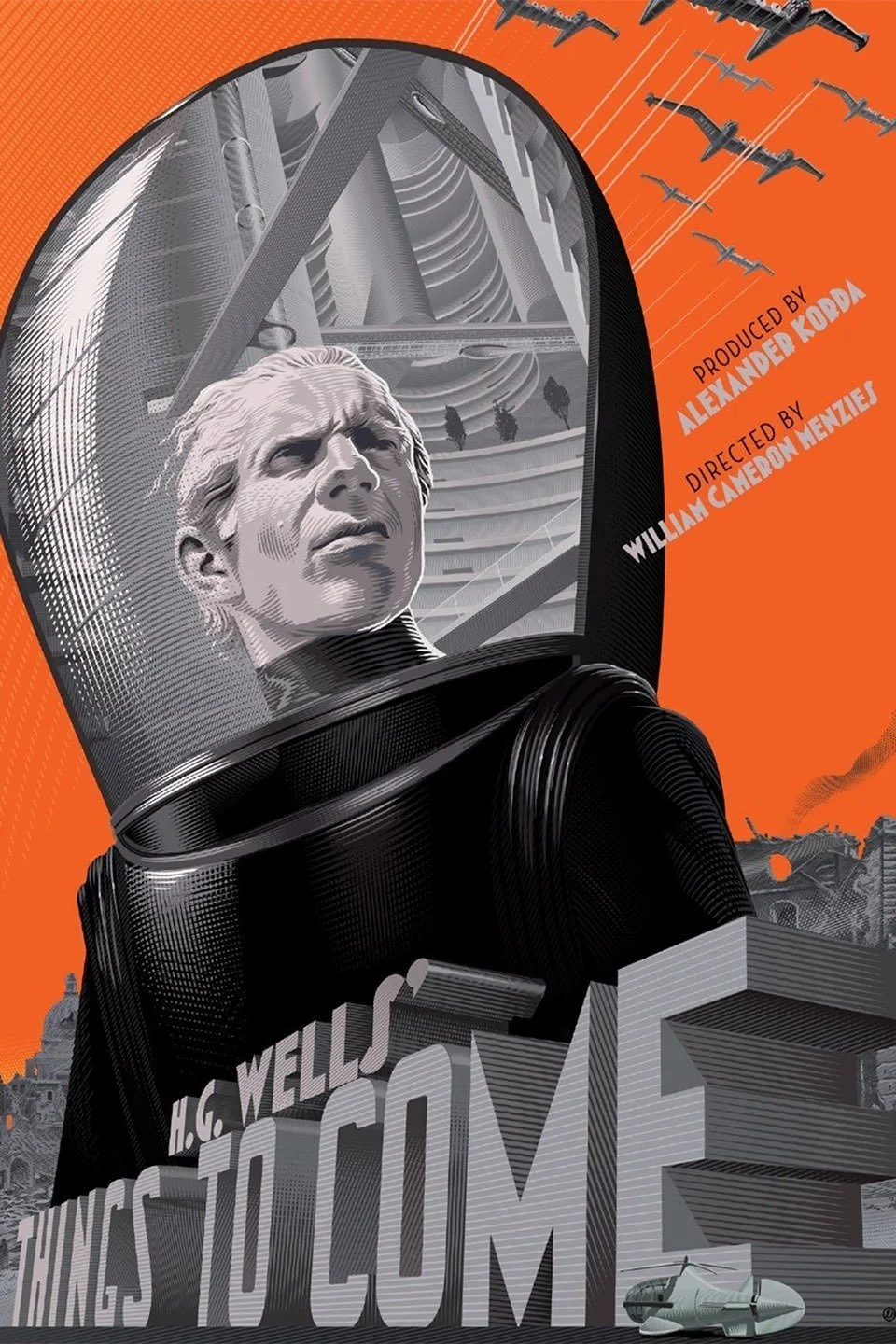It's very interesting to see a science fiction film with political connotations in this time period. While you could argue that Science Fiction is an ultimate genre of escapism I would say that it is actually highly realistic and inherently a genre that is designed to force political and social awareness by using future possibilities as a means to explore the current trends of the day with a magnifying glass. This is the first sci-fi film on the list not counting A Trip to the Moon. I would say it's truly the first science fiction film in it's overtly political nature. This is a deviation from the path of films towards purely escapist pieces of entertainment for a mass audience wanting to avoid the harsh realities of the Great Depression. And I would say it's because the world is now starting to turn in a direction that will force everyone to come out from hiding and have to confront the brutal reality of a post Depression, rising nationalist World.
This film is startling for how close it comes to predicting the soon to be reality of WW2. In a way you can see how the world is preparing itself for that reality through it's artwork. Obviously the film’s content has a lot to do with the source material. But the way it was made was similar to other films of the day by diluting the actual political and social message through the use of spectacle so that the American audience wasn’t directly faced with their problems. You could classify this film as escapist in its use of sets, wardrobe and “ridiculous” scenarios. But again I would argue that the plotline strikes so close to what will be reality that this film really does serve as a sobering reminder to audiences of the truth of what lies outside in the world beyond the movie theater.
Given that the film was British I would attribute the political nature of it to the fact that Europeans were closer to this rising tension and reality than America and thus had more need to scare audiences awake to the possibilities of tomorrow. If it was American the messaging wouldn’t have been as overt and palpable. There probably would have been a greater emphasis on the love interest rather than the apocalyptic storyline.
This film is definitely a forefather for the science fiction genre that will dominate the 1950’s under the spectre of the cold war.
